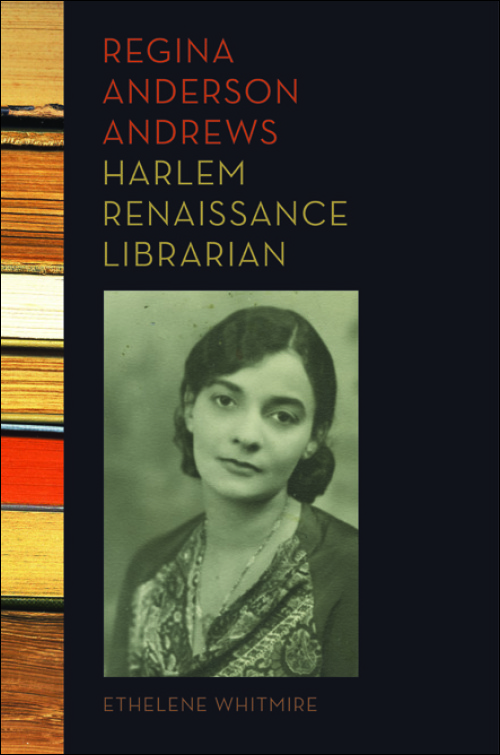Breaking the Color Barrier: Regina Andrews and the New York Public Library
Libraries & the Cultural Record
Volume 42, Number 4, 2007
pages 409-421
DOI: 10.1353/lac.2007.0068
Ethelene Whitmire, Associate Professor of Library & Information Studies
University of Wisconsin, Madison
Chicago native Regina Anderson Andrews (1901–93) was a librarian in the New York Public Library (NYPL) system for nearly half a century beginning in 1923 at the 135th Street branch (now the Schomburg Center for Research in Black Culture) until her retirement from the Washington Heights branch in 1967. Andrews broke the color barrier by becoming the first African American supervising librarian in NYPL history. Her accomplishment was not an easy one. This article illustrates Andrews’s groundbreaking career as a librarian and activist, including her fight, with W. E. B. Du Bois as a powerful ally, against the NYPL administration for opportunities for promotion and equal pay.
“I’m American,” Regina Anderson wrote in 1923 on her application for a position in the New York Public Library (NYPL) when asked to give her race. Three or four days after she completed the application at the main branch on 42nd Street, Anderson received a request to return to discuss her answers—this one in particular. Asked again about her racial designation and stating firmly that she was American, Anderson was told, “You’re not an American. You’re not white.”
Like untold numbers of U.S. citizens, Anderson came from a multicultural background requiring a roadmap to follow. Her father, William Grant “Habeas Corpus” Anderson, a prominent criminal lawyer in Chicago, was the son of a Swedish immigrant and his American Indian wife. Her mother, Margaret Simons, was the daughter of Henry Simons, the son of an Arkansas Confederate general and an immigrant Jewish woman. Henry’s wife, Regina’s maternal grandmother, was the offspring of a Madagascar woman and an East Indian man. Regina considered herself an American.
In December 1924, a year after the application incident, this “pert olive-skinned girl” would grace the cover of Messenger magazine’s issue that featured “Negro women who are unique, accomplished, beautiful, intelligent, industrious, talented and successful.”
The NYPL hired Anderson, but because of her color, her interviewer told her, “We’ll have to send you to Harlem.” Besides determining her…
